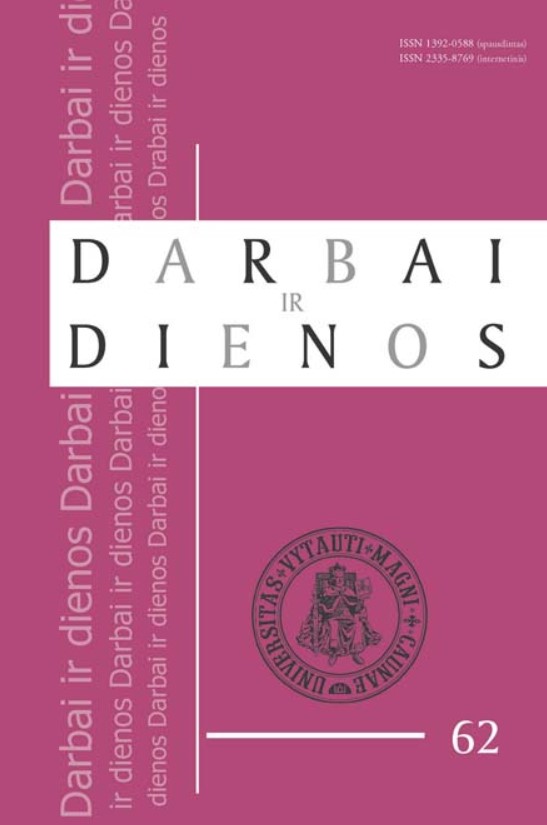KALTĖ ANAPUS KALTINIMŲ, ARBA BENDRUOMENINĖS HOLOKAUSTO ATMINTYS LIETUVOJE
GUILT BEYOND ACCUSATIONS, OR MEMORIES OF THE HOLOCAUST IN LITHUANIAN SHTETLS
Author(s): Jurga JonutytėSubject(s): Studies in violence and power, Victimology, WW II and following years (1940 - 1949), History of the Holocaust, History of Antisemitism, Politics of History/Memory
Published by: Vytauto Didžiojo Universitetas
Keywords: guilt; Holocaust; social memory; shtetl; memory narrative; tragic hero; historical truth;
Summary/Abstract: This article is an attempt to show the difference between guilt as a reaction to accusations and guilt as a positive impulse for social change. These attitudes are not related and cannot be derived from each other. Accusation abolishes the positive power of guilt, i.e., excludes this communal attitude from the processes of social creativity. New understandings and behaviors in a community are produced by this kind of communal guilt which gradually emerges from experiences of social shock when confronting acts of radical violence, and from an understanding of the links between previous mental attitudes and the cruel events. Memories of the Holocaust in Lithuanian shtetls (small towns that previously were predominantly Jewish) express exactly this fully active and communally necessary kind of guilt consciousness which is not for show. This guilt is not an experience felt solely by the direct perpetrators; it is a communal state, expressed more in a lack of narrativization and verbalization (or in unconscious rejection of previous conceptual ground) than in concrete texts or statements. This is more social metanoia in which new criteria for historical truth are able to appear. Therefore this kind of guilt consciousness is possible only beyond accusations in the live communicative memory of a community: it rather forms criteria for historical truth instead of just reacting to the given historical data.
Journal: Darbai ir dienos
- Issue Year: 2014
- Issue No: 62
- Page Range: 127-138
- Page Count: 12
- Language: Lithuanian

